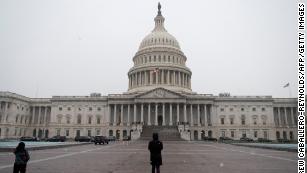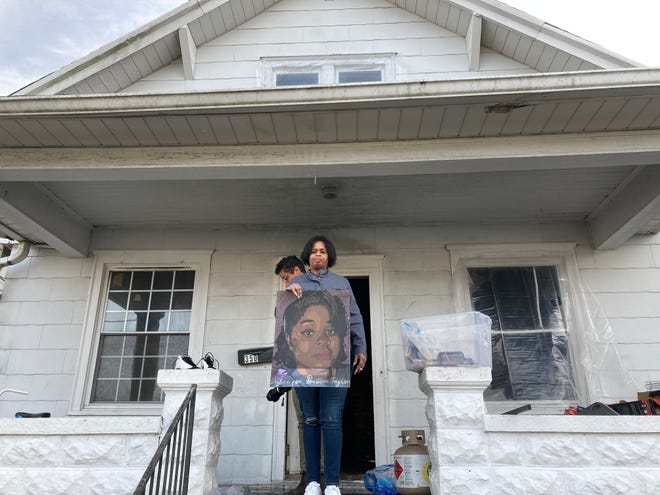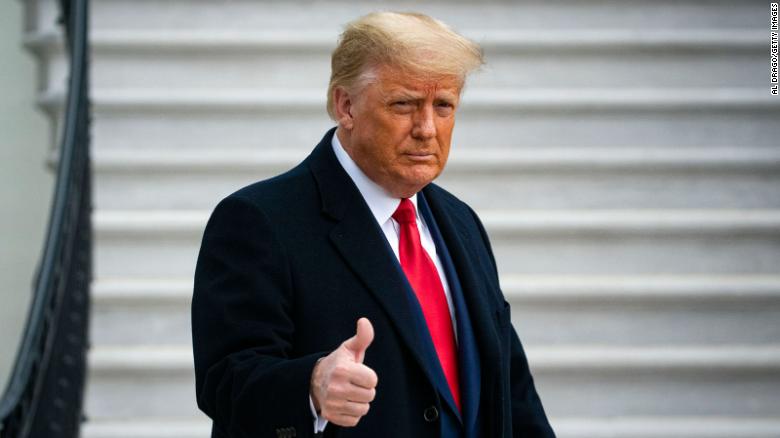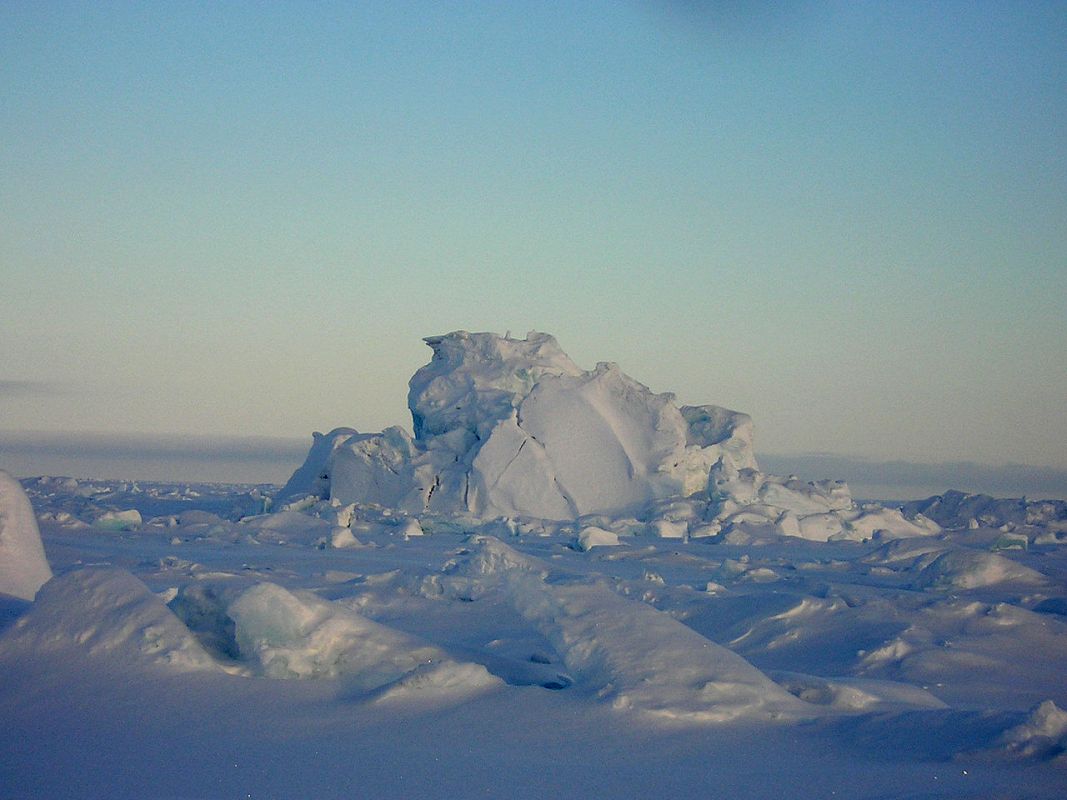Trump signs coronavirus relief and government funding bill into law after lengthy delay
By Kevin Liptak, Kate Bennett, Tami Luhby, Kaitlan Collins, Jason Hoffman, Phil Mattingly and Jeremy Diamond, CNN
Updated 1102 GMT (1902 HKT) December 28, 2020However, because Trump did not sign the bill on Saturday, those in the Pandemic Unemployment Assistance and the Pandemic Emergency Unemployment Compensation programs will likely not receive a payment for the final week of the year. And the $300 federal enhancement may only last 10 weeks instead of 11 weeks for most folks. That's because states can't provide benefits for weeks that start before programs are authorized, but the legislation calls for the extra payments to end on March 14. Also, because Congress waited until late December to strike a deal, those in the two pandemic unemployment programs will likely experience a break in payments of several weeks while state agencies reprogram their computers. But the benefits are retroactive.
The Covid-19 relief legislation was passed by Congress on Monday and was flown to Mar-a-Lago on Thursday to await Trump's signature. But after sitting on the sidelines during the negotiations, Trump emerged with an eleventh-hour complaint that a separate provision in the deal, which the President's own White House helped broker, would only provide up to $600 in direct payments. Trump wanted to send out $2,000 checks. Trump also took umbrage with certain items that were actually from the omnibus spending package and which he had requested in his annual budget to Congress.
TRUMP WHITE HOUSE
Trump signaled in a statement Sunday night that he signed the coronavirus relief bill only after securing a commitment for the Senate to consider legislation to increase stimulus checks from $600 to $2,000. Senate Majority Leader Mitch McConnell, however, did not reference that commitment in his own statement Sunday night praising the President for signing the relief bill.
House Speaker Nancy Pelosi had seized on Trump's call for $2,000 checks last week and brought to the floor a standalone bill that would have boosted the amount for relief checks on Thursday. House Republicans, however, objected to the bill over deficit concerns.
The Democratic-led House is set to vote on the expansion of the direct payments on Monday.
Calling the President's signing of the relief bill "welcome news" for Americans whose benefits had lapsed, Pelosi said in a statement Sunday that Trump should "immediately call" on Republicans "to end their obstruction and to join him and Democrats in support of our stand-alone legislation to increase direct payment checks to $2,000."

Here's what's in the second stimulus package
Trump also claimed that the Senate will consider legislation that "repeals Section 230, and starts an investigation into voter fraud," though it is not clear what that legislation would be. There is no evidence of widespread voter fraud in November's election.
Trump last week vetoed the National Defense Authorization Act -- which passed both chambers of Congress with veto-proof majorities -- in part because of his frustration over Section 230, a law that shields internet companies from liability for what is posted on their websites by them or third parties. The House is expected to act Monday to override Trump's veto. But House Minority Leader Kevin McCarthy has suggested many Republicans won't vote to override Trump's veto, despite having voted for the bill itself, so it's unclear if the override attempt will be successful or if the veto will stand.
Trump also said in his Sunday statement that he would submit a request for Congress to cut specific spending items in the Covid relief and government funding package, a nod to his litany of complaints about foreign aid. But that request, beyond freezing new spending on the specified items for a period of 45 days, will have no meaningful effect. Trump will be out of office before Congress could act on any of his requests.
\\
The relief package extends two programs that were part of the historic expansion of the nation's unemployment system that Congress enacted as part of the $2 trillion CARES Act in late March.
The Pandemic Unemployment Assistance program allowed independent contractors, the self-employed, freelancers and gig workers to qualify for up to 39 weeks of payments. It also opened up the program to those who can't work because of the pandemic, including if they or family members are ill or quarantining or if their children's schools are closed.
And the Pandemic Emergency Unemployment Compensation program provided an additional 13 weeks of federally paid benefits to those who run out of state payments, which typically last 26 weeks. The programs technically would have expired on December 31.
The third CARES Act measure -- an extra $600 a week in federal payments -- expired at the end of July.
The new stimulus deal extends the two pandemic programs for up to 11 weeks. Each closes to new applicants on March 14, but continues through April 5 for existing claimants who have not yet reached the maximum number of weeks.
The relief package also extends eviction protection to January 31 and provides $25 billion in rental assistance for those who lost their sources of income during the pandemic.
A US Centers for Disease Control and Prevention order halting some evictions was set to expire at the end of the year. Since the order does not cancel or freeze rent, all of a tenant's back rent would have been due January 1 if the moratorium had been allowed to expire. Without rent relief or an extension of the protection, many struggling renters would again face eviction.
An estimated 9.2 million renters who have lost employment income during the pandemic are behind on rent, or 23% of such renters, according to an analysis of Census Bureau data by the Center on Budget and Policy Priorities.
A lengthy delay
Trump signed the bill almost a week after calling it a "disgrace" and demanding Congress amend the legislation. Trump's complaints came only after Congress passed the bill with a veto-proof majority and after the President stood on the sidelines during weeks of negotiations.
Aides had prepared for the President to sign the bill as early as Christmas Eve, when it arrived at Mar-a-Lago for his signature. But the plan was scrapped at the last minute, two sources with knowledge of the circumstances told CNN.
In anticipation of the signing, the smaller of Mar-a-Lago's two ballrooms was prepped for a 7 p.m. ceremony, complete with a desk and chair for Trump to sit, and his customary pens at the ready, according to the source.
However, as the hour approached, aides were informed the President would not be signing the relief bill that evening. One source told CNN that Trump had "changed his mind."
The country, Congress and many of Trump's closest aides and advisers had remained in the dark as to what he intended to do. He had not offered any clarity since posting the video objecting to the bill on Tuesday night.
When a deal was struck between congressional leaders, Trump's aides had signed off believing the President was on board, though two officials previously told CNN they did not believe he was walked through the package in detail.
In fact, throughout his video message asking Congress to amend it, Trump railed against several provisions that were part of the omnibus spending bill, not the Covid relief bill.
"It is called the Covid relief bill, but it has almost nothing to do with Covid," the President said at one point.
While the omnibus spending bill -- which appropriates money for all the federal agencies for the rest of the fiscal year -- was combined with the stimulus deal, funds allocated to the omnibus bill don't mean less is available for the Covid relief bill.
Still, the President had publicly maintained his opposition to the legislation -- leaving small business support, jobless benefits and relief checks for millions of Americans in limbo.
This story has been updated with additional information.
CNN's Paul LeBlanc contributed to this report.
























